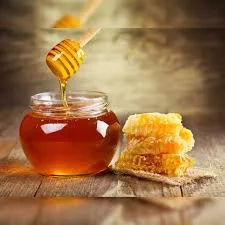The spread of fake honey has become a source of concern because of its health implication.
Some, indeed, believe government ought to have intervened, say, through the National Agency for Food and Drug Administration and Control (NAFDAC).
He is the National President of the Youths for Apiculture Initiative (YFAI) and Chief Executive Officer of Makizi Raw Honey, Mr Kingsley Nwaogu.
The yardsticks revolve around colour, taste and flow.
In an interview with the News Agency of Nigeria (NAN) on Sunday in Lagos, Nwaogu decried the difficulty in identifying pure unadulterated honey in the country.
He, however, listed three simple litmus tests consumers could use to determine pure honey from the fake.
“It is really a serious concern to identify pure unadulterated honey, however, the best way of knowing original honey is through laboratory analysis.
“However, we know that laboratory analysis is not readily available. So, we were able to carve out physical yardsticks of knowing pure natural honey. One of it is the colour of the honey. Honey maintains golden shade.
“Though the vegetation around the apiary where the bee colonies are located also determine the physical and chemical property of honey i.e. the colour and the nutritional value. Usually honey is not very thick and it is not very black,” Nwaogu said.
According to him, another yardstick for determining pure honey is the after sugary test. Pure natural honey does not have after sugary test.
“Once you consume pure natural honey, the sweetness will disappear from your mouth immediately.
“Then, the third yardstick is viscosity, this is not necessarily about its thickness. It is about the consistency in its flow. Pure honey does not break like pure engine oil, it maintains a consistency of flow. It does not break,” he said.
The YFAI chairman said the association had taken steps to clampdown on fake and dishonest honey farmers by giving the real beekeepers identification numbers.
“To clamp down on impure and adulterated honey, as an association, we carry out sensitisation by training new entrants on modern beekeeping production.
“And also, we give a specific, unique number in our identification (ID) card of real honey producers, so that before a consumer can buy, the consumer should request for the ID card of a bee farmer.
“That way, they can scan the produce to really confirm if that person is a member of the association.
“Another thing is that consumers should ask questions and know the source of the honey that they are consuming is from an honest bee farmer.
“Consumers should always ensure the traceability of the honey they purchase,” the chairman said.
He added that the value-chain of local honey could be expanded, if honey farmers were honest in their production.
“We can increase local productivity of pure unadulterated honey by getting more people involved in beekeeping .
“We also need to reorient them, so that they will know that quality is not negotiable, that adulteration will not get export income .
“Beekeepers need to understand that they are going into this business for health of the people, not for money.
“The problem is that most people selling honey are not interested in value creation and quality honey for the health of the consumers.
“So, there is a need for proper, adequate sensitisation and get people involved so that they will know that keeping the bee is not only to produce honeybee products, but it also enhances the productivity and yield of the food crops and other wild plants,” he said.



